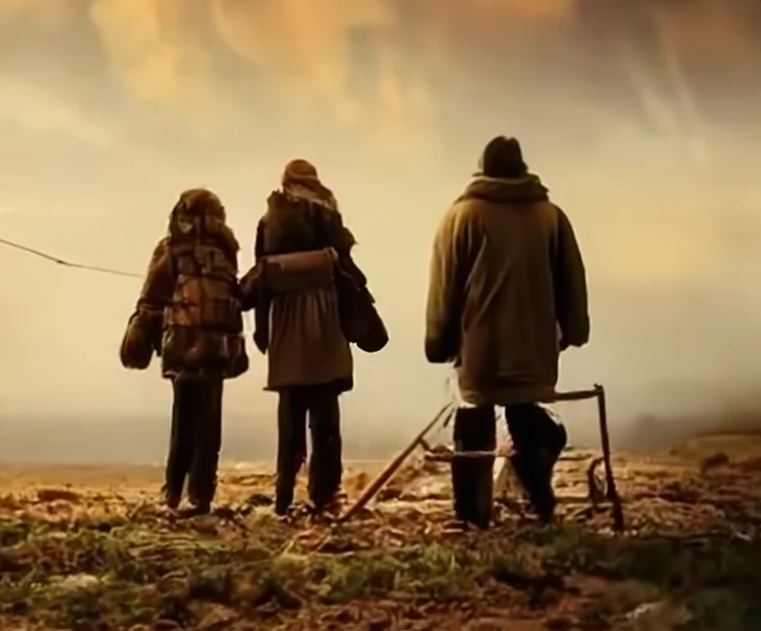Should I Stay or Should I Go? The Pros and Cons of Bugging Out

In the world of emergency preparedness, one of the most hotly debated conversations revolves around the stark choice between bugging in and bugging out. When SHTF, should you stay in your home and fortify your position, or should you hit the road in search of safer grounds, e.g., getting out of Dodge and heading to your BOL? Each option has its own set of advantages and drawbacks, making the decision a critical one that requires careful consideration.
Bugging In: Staying Put for Safety
Pros:
- Familiarity and Comfort: Your home is intimately familiar territory. You know its layout, its strengths, and its weaknesses. This sense of familiarity and comfort can be crucial during times of stress and tribulation.
- Supplies and Resources: In many cases, your home will already be stocked with significant quantities of essential prepper supplies, including weapons, food, water, tools, medical supplies, warm clothes and bedding. Staying put allows you to maximize the use of these resources for extended periods.
- Community and Support: If you have a tight-knit community or family nearby, bugging in can provide a strong physical and emotional support network. Shared resources and skills can contribute to survival.
- Security: A thoughtfully prepared home can be a sanctuary against threats, providing better protection than an improvised shelter. You have control over access points and defense strategies.
Cons:
- Limited Mobility: Being confined to your home means limited mobility. If danger is imminent or resources run out, your options may become severely restricted.
- Resource Depletion: Even with stockpiles, resources might eventually run low. Bugging in requires meticulous planning to ensure a sustainable supply of essentials.
- Localized Threats: If your home is vulnerable to specific threats like floods or wildfires, staying put might put you in harm's way. Depending on the scenario, local gangs and criminals could also become a major factor. What happens when the local bikie gang decides to burn you out of your well-stocked, well fortified home?
Bugging Out: Taking to the Road
Pros:
- Avoiding Threats: Bugging out can help you escape immediate dangers, whether it's a natural disaster, civil unrest, or a pandemic. You can seek safer areas away from the danger zone.
- Adaptability: Bugging out requires you to be resourceful and adapt to changing circumstances. Mobility can increase your chances of finding resources and refuge.
- Fresh Start: A new location might offer better survival opportunities. This could include access to water, food sources, and better shelter options.
Cons:
- Uncertainty: Bugging out brings uncertainty. Finding a safe destination with resources intact can be challenging, and you might be faced with unexpected obstacles along the way.
- Limited Supplies: While you might carry a bug-out bag, it's difficult to predict how long you'll be on the move. Supplies could run out, leaving you vulnerable.
- Security Concerns: Traveling during chaotic times carries security risks. You might encounter desperate individuals or groups who could pose threats.
- Not an Option: If you are, or caring for, someone living with a disability, physically and/or mentally unprepared, dependent on modern medical equipment, too young or old, or a host of other reasons, then bugging out may not be viable.
The Bottom Line
Ultimately, the decision to bug-in or bug-out depends on factors unique to each situation. Consider the nature of the threat, the resources available to you, your level of preparedness (including fitness levels), and the potential risks to you and your family. In some scenarios, bugging in may clearly be the safer option, allowing you to rely on your home's resources and your community's support. However, bugging out can be a lifesaver if immediate threats make staying put untenable.
A balanced approach might involve having a well-equipped BOB and a thorough emergency plan while also investing in fortifying your home for bugging in scenarios. Whichever path you choose, remember that preparedness and adaptability are key. Flexibility in your strategy and the ability to evaluate evolving circumstances can make the crucial difference when SHTF.
Let me know what your thoughts are on staying put or hitting the road using the above pros and cons.
